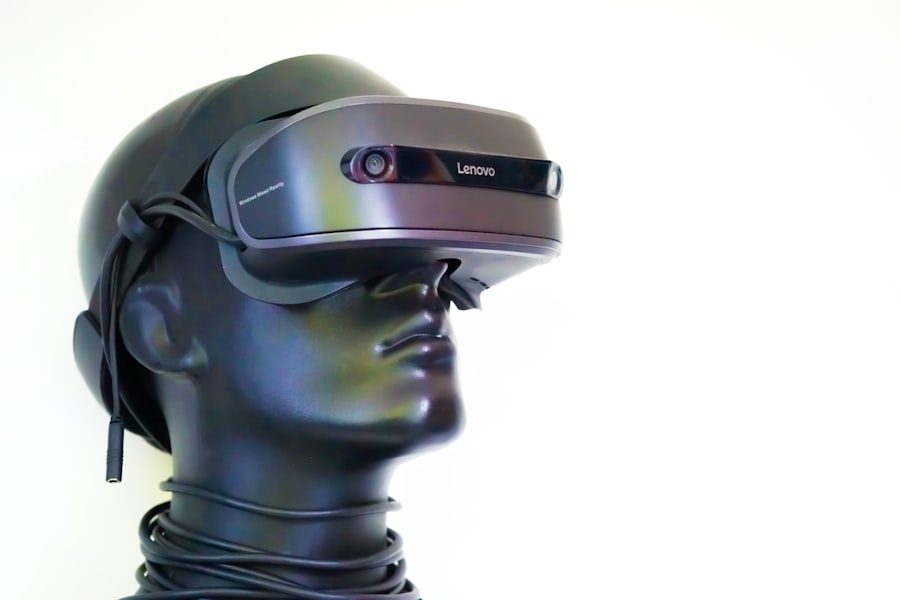Digital marketing has undergone a remarkable transformation since its inception, evolving from rudimentary online advertisements to a sophisticated ecosystem that leverages advanced technologies and data analytics. In the early days of the internet, marketing efforts were primarily focused on banner ads and email campaigns, which, while groundbreaking at the time, lacked the precision and targeting capabilities that modern marketers now take for granted. As the digital landscape expanded, so too did the strategies employed by businesses to reach their audiences.
The advent of social media platforms, search engine optimization (SEO), and content marketing has revolutionized how brands engage with consumers, allowing for more interactive and personalized experiences. This evolution has not only changed the way companies communicate their messages but has also redefined consumer expectations, leading to a demand for more relevant and timely interactions. As we delve deeper into the 21st century, the pace of change in digital marketing continues to accelerate, driven by technological advancements and shifting consumer behaviors.
The rise of mobile devices has further transformed the marketing landscape, enabling brands to connect with consumers anytime and anywhere. This omnipresence has necessitated a more agile approach to marketing, where real-time data analysis and responsiveness are paramount. Moreover, the increasing importance of social proof and user-generated content has shifted the focus from traditional advertising to building authentic relationships with customers.
As we explore the various facets of digital marketing today, it becomes evident that the integration of innovative technologies and a deep understanding of consumer psychology are essential for brands aiming to thrive in this dynamic environment.
Key Takeaways
- Digital marketing has evolved significantly over the years, with new technologies and strategies shaping the industry.
- Artificial intelligence and machine learning are revolutionizing marketing by enabling data-driven decision making and personalized customer experiences.
- With the decline of third-party cookies, marketers are focusing on personalization and customer experience through first-party data and alternative tracking methods.
- Video content and interactive experiences are becoming increasingly important in engaging and connecting with audiences in the digital space.
- Voice search and virtual assistants are changing the way consumers interact with brands, requiring marketers to adapt their strategies to optimize for these platforms.
The Rise of Artificial Intelligence and Machine Learning in Marketing
Artificial intelligence (AI) and machine learning (ML) have emerged as game-changers in the realm of digital marketing, offering unprecedented opportunities for brands to optimize their strategies and enhance customer engagement. These technologies enable marketers to analyze vast amounts of data with remarkable speed and accuracy, uncovering insights that were previously unattainable. For instance, AI algorithms can predict consumer behavior by analyzing patterns in purchasing history, social media interactions, and even browsing habits.
This predictive capability allows brands to tailor their marketing efforts more effectively, ensuring that they deliver the right message to the right audience at the right time. As a result, businesses can not only improve their return on investment (ROI) but also foster deeper connections with their customers. Moreover, AI-driven tools are revolutionizing content creation and distribution.
From chatbots that provide instant customer support to automated email campaigns that adapt based on user interactions, these technologies are streamlining processes and enhancing user experiences. Machine learning algorithms can also optimize ad placements in real-time, ensuring that marketing budgets are allocated efficiently across various channels. As brands increasingly adopt AI and ML technologies, they are not only gaining a competitive edge but also setting new standards for personalization and engagement in digital marketing.
The implications of these advancements are profound, as they pave the way for a future where marketing is not just about reaching consumers but understanding them on a deeper level.
Personalization and Customer Experience in a Post-Cookie World

The digital marketing landscape is currently navigating a significant shift as privacy regulations tighten and third-party cookies become obsolete. This transition has prompted marketers to rethink their strategies for personalization and customer experience. In a post-cookie world, where tracking user behavior across websites is becoming increasingly challenging, brands must rely on first-party data—information collected directly from consumers through interactions on their own platforms.
This shift necessitates a more transparent approach to data collection, where consumers are informed about how their information will be used and are given control over their data preferences. By fostering trust and transparency, brands can cultivate stronger relationships with their customers while still delivering personalized experiences. In this new paradigm, personalization takes on a more nuanced form.
Instead of relying solely on cookies to track user behavior across the web, marketers are now focusing on creating tailored experiences based on individual preferences and interactions within their own ecosystems. This could involve leveraging customer relationship management (CRM) systems to analyze purchase history or utilizing surveys to gather insights directly from consumers. By prioritizing first-party data collection and emphasizing customer consent, brands can create meaningful interactions that resonate with their audience.
Ultimately, this evolution in personalization not only enhances customer satisfaction but also aligns with growing consumer expectations for privacy and ethical data usage.
The Growing Importance of Video Content and Interactive Experiences
In an era where attention spans are dwindling, video content has emerged as a dominant force in digital marketing strategies. The visual nature of video allows brands to convey complex messages quickly and effectively, making it an ideal medium for capturing consumer interest. Platforms like YouTube, TikTok, and Instagram have popularized short-form video content, encouraging brands to experiment with creative storytelling techniques that engage viewers on a deeper level.
Furthermore, video content is highly shareable, increasing its potential reach as consumers share compelling videos within their networks. As a result, businesses that prioritize video marketing are not only enhancing their brand visibility but also fostering a sense of community among their audience. Interactive experiences are another critical component of modern digital marketing strategies.
By incorporating elements such as polls, quizzes, and augmented reality (AR) features into their campaigns, brands can create immersive experiences that encourage active participation from consumers. These interactive elements not only enhance engagement but also provide valuable insights into consumer preferences and behaviors. For instance, a brand might use an interactive quiz to recommend products based on individual responses, creating a personalized shopping experience that resonates with users.
As consumers increasingly seek out engaging content that goes beyond passive consumption, the integration of video and interactive experiences will continue to play a pivotal role in shaping successful digital marketing strategies.
The Role of Voice Search and Virtual Assistants in Marketing Strategies
The rise of voice search technology and virtual assistants has fundamentally altered how consumers interact with information online. With devices like Amazon’s Alexa, Google Assistant, and Apple’s Siri becoming commonplace in households worldwide, voice search is rapidly gaining traction as a preferred method for seeking information. This shift presents both challenges and opportunities for marketers who must adapt their strategies to accommodate this new mode of interaction.
Optimizing content for voice search requires a different approach than traditional SEO; marketers must focus on natural language processing and conversational keywords that align with how people speak rather than how they type. This evolution necessitates a deeper understanding of consumer intent and behavior as they engage with voice-activated devices. Moreover, virtual assistants offer brands unique opportunities for direct engagement with consumers.
By integrating with these platforms, businesses can provide instant answers to customer inquiries or facilitate transactions through voice commands. For example, a consumer might ask their virtual assistant for recommendations on local restaurants or inquire about product availability at nearby stores. Brands that optimize their presence on these platforms can enhance customer convenience while positioning themselves as accessible resources in the minds of consumers.
As voice search technology continues to evolve, marketers must remain agile in adapting their strategies to leverage this growing trend effectively.
Ethical and Privacy Considerations in Digital Marketing

As digital marketing becomes increasingly data-driven, ethical considerations surrounding privacy have come to the forefront of industry discussions. With consumers becoming more aware of how their data is collected and used, brands must navigate this landscape with transparency and integrity. The implementation of regulations such as the General Data Protection Regulation (GDPR) in Europe and the California Consumer Privacy Act (CCPA) in the United States has heightened scrutiny on data practices within the marketing sector.
Companies are now required to obtain explicit consent from users before collecting personal information and must provide clear options for opting out of data tracking. This shift towards greater accountability not only protects consumer rights but also fosters trust between brands and their audiences. In addition to compliance with legal regulations, ethical considerations extend beyond mere data protection; they encompass broader issues related to inclusivity and representation in marketing practices.
Brands must be mindful of how they portray diverse communities in their campaigns while ensuring that their messaging resonates authentically with all segments of their audience. This commitment to ethical marketing practices not only enhances brand reputation but also aligns with evolving consumer expectations for social responsibility. As digital marketers navigate this complex landscape, prioritizing ethical considerations will be essential for building lasting relationships with consumers who value transparency and authenticity.
The Integration of Augmented Reality and Virtual Reality in Marketing Campaigns
The integration of augmented reality (AR) and virtual reality (VR) technologies into marketing campaigns represents one of the most exciting frontiers in digital marketing today. These immersive technologies allow brands to create engaging experiences that captivate consumers’ attention while providing unique opportunities for interaction. For instance, AR applications enable users to visualize products in their own environments before making a purchase decision—think of furniture retailers allowing customers to see how a sofa would look in their living room through their smartphone camera.
This level of interactivity not only enhances the shopping experience but also reduces uncertainty for consumers, ultimately leading to higher conversion rates. On the other hand, VR offers brands an opportunity to transport consumers into entirely new worlds through immersive storytelling experiences. Companies can create virtual showrooms or host events that allow users to explore products or services in an engaging way that traditional advertising cannot replicate.
For example, travel companies can use VR technology to provide virtual tours of destinations, enticing potential travelers by immersing them in breathtaking landscapes before they even book a trip. As AR and VR technologies continue to advance, they will undoubtedly play an increasingly vital role in shaping innovative marketing strategies that resonate with tech-savvy consumers seeking memorable experiences. In conclusion, the evolution of digital marketing is marked by rapid technological advancements and shifting consumer expectations that demand adaptability from brands across industries.
From harnessing AI-driven insights to navigating privacy concerns in a post-cookie world, marketers must remain vigilant in understanding the complexities of this dynamic landscape. As we look ahead, it is clear that embracing innovation—whether through video content creation or immersive AR experiences—will be essential for brands aiming to connect meaningfully with their audiences while driving business growth in an ever-evolving digital marketplace.
If you’re interested in the future of digital marketing and how technology continues to shape the industry, you might also find value in exploring the latest advancements in tech gadgets that could influence marketing strategies. For instance, understanding the features and capabilities of the top smartwatches of the year can provide insights into how wearable technology can be leveraged for more personalized marketing approaches. Check out this related article on The Top 5 Smartwatches of 2023 to see how these devices are evolving and what new features marketers might tap into by 2025.
FAQs
What is digital marketing?
Digital marketing is the use of digital channels such as social media, search engines, email, and websites to connect with current and prospective customers. It encompasses a wide range of online marketing activities aimed at promoting products or services.
What are some current trends in digital marketing?
Some current trends in digital marketing include the use of artificial intelligence, personalized marketing, video content, voice search optimization, and influencer marketing. These trends are shaping the way businesses connect with their target audience online.
What can we expect in the future of digital marketing in 2025?
In 2025, we can expect digital marketing to be even more personalized and interactive. With advancements in technology, we may see an increase in the use of virtual and augmented reality for marketing purposes. Additionally, the use of data analytics and machine learning will continue to play a significant role in targeting and engaging with consumers.
How will the rise of AI impact digital marketing in 2025?
The rise of AI is expected to have a significant impact on digital marketing in 2025. AI will enable marketers to analyze large amounts of data to better understand consumer behavior and preferences, leading to more personalized and targeted marketing campaigns. AI-powered chatbots and virtual assistants will also enhance customer interactions and support.
What are some potential challenges in the future of digital marketing?
Some potential challenges in the future of digital marketing include privacy concerns, ad-blocking technology, and the need to adapt to evolving consumer behaviors and preferences. Marketers will need to find innovative ways to engage with consumers while respecting their privacy and delivering valuable content.

